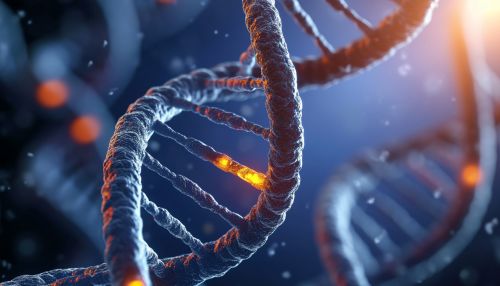Single Nucleotide Polymorphisms (SNPs)
Introduction
Single Nucleotide Polymorphisms (SNPs) are the most common type of genetic variation among people. Each SNP represents a difference in a single DNA building block, called a nucleotide. SNPs occur normally throughout a person’s DNA. They occur once in every 300 nucleotides on average, which means there are roughly 10 million SNPs in the human genome. Most commonly, these variations are found in the DNA between genes. They can act as biological markers, helping scientists locate genes that are associated with disease. When SNPs occur within a gene or in a regulatory region near a gene, they may play a more direct role in disease by affecting the gene’s function.


Types of SNPs
There are several types of SNPs, classified based on their location in the genome and their effect on biological function.
Intergenic SNPs
Intergenic SNPs are located in the non-coding regions of the genome, between genes. These SNPs are often used in genome-wide association studies (GWAS) to identify regions of the genome associated with disease.
Intronic SNPs
Intronic SNPs are located within introns, the non-coding regions within genes. While introns are often considered "junk DNA," some intronic SNPs can affect gene splicing, transcription factor binding, and can be associated with disease risk.
Exonic SNPs
Exonic SNPs are located within exons, the coding regions of genes. These SNPs can be synonymous (do not change the amino acid sequence of the protein) or non-synonymous (change the amino acid sequence). Non-synonymous SNPs can be further classified into missense (change one amino acid in the protein sequence) and nonsense (introduce a premature stop codon in the protein sequence) SNPs. These types of SNPs can have a direct effect on protein function and can be associated with disease.
SNPs and Disease Risk
SNPs can influence disease risk in several ways. They can cause a direct change in the protein sequence, leading to a non-functional or less functional protein. They can also affect how much of a protein is made, when and where it is made, and how it interacts with other molecules in the cell. Some SNPs are associated with multiple diseases, suggesting that they may affect a fundamental process that is common to many diseases.
SNPs and Pharmacogenomics
Pharmacogenomics is the study of how genes affect a person's response to drugs. SNPs can affect drug metabolism, efficacy, and toxicity. For example, SNPs in the gene CYP2C19 affect the metabolism of several drugs, including clopidogrel, a drug used to prevent heart attacks and stroke. Individuals with certain SNPs in CYP2C19 are poor metabolizers of clopidogrel and may not benefit from the drug.
SNPs and Population Genetics
SNPs are also used in population genetics to study the history and migration patterns of human populations. Because SNPs are stable and do not change over time, they can be used to trace lineage and ancestry. This is the basis for many commercial genetic ancestry tests.
